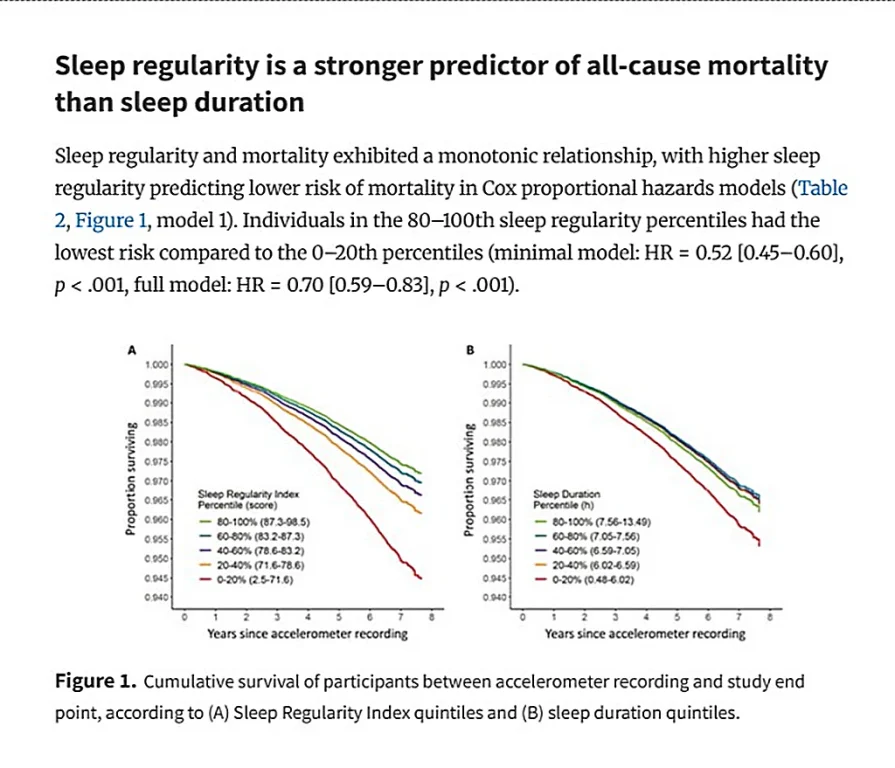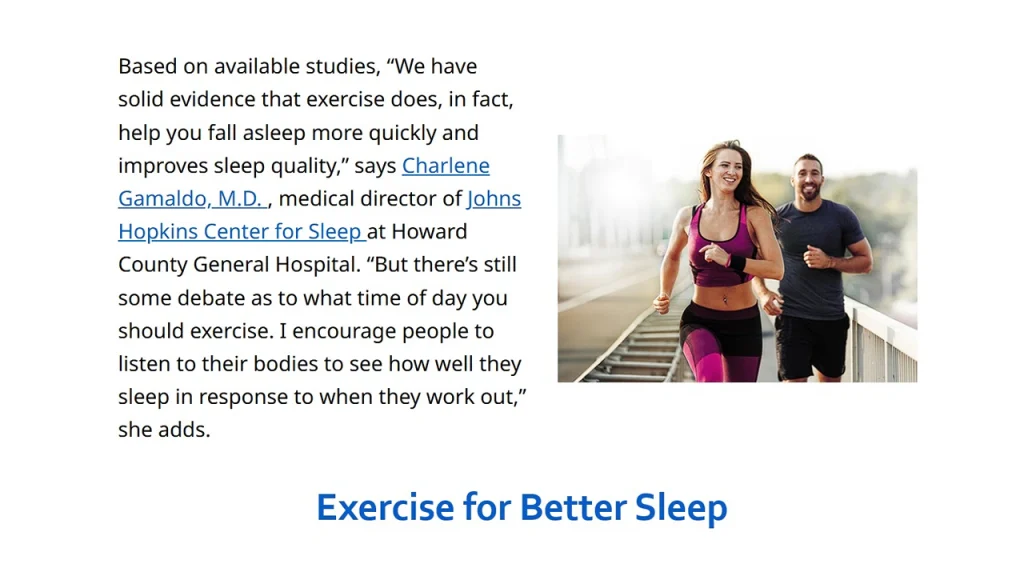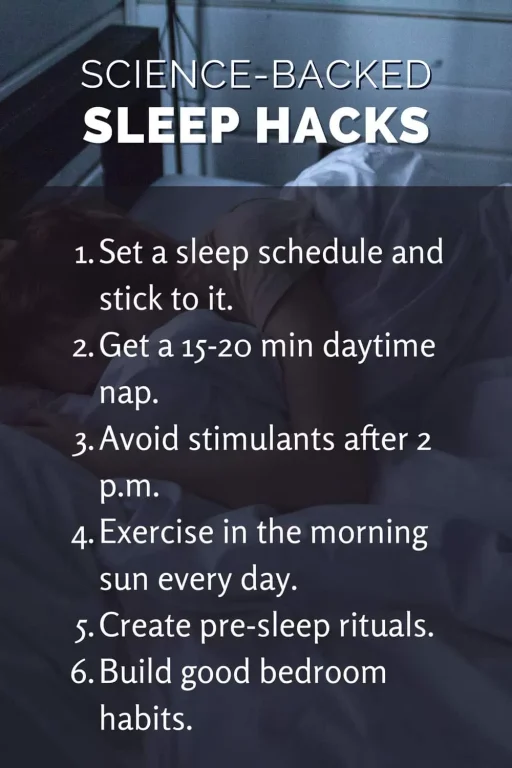Today's Saturday • 13 mins read
— By Dr. Sandip Roy.
Alarming sleep facts:
- 62% of people worldwide sleep somewhat well or not at all well (Global Sleep Survey).
- 35.2% of US citizens report sleeping less than 7 hours on average per night (CDC Report).
- Poor sleep can reduce lifespan by 4.7 years for women and 2.4 years for men (ACC report).
Less than 7 hours of sleep a night has been shown to cause:
- 25% reduction insulin sensitivity
- 10% reduction in testosterone
- 10 mm Hg higher blood pressure
- 20% increase in inflammation
- 20% increase in all-cause mortality
- 40% increase in cardiovascular mortality
We all need to sleep enough. More than feeling rested, it defines how healthily our brain’s waste clearance system works as we age (Jiang-Xie & Drieu, 2025).
Without sufficient sleep (specifically the slow-wave stage), metabolic debris piles up in the brain. Which speeds up age-related brain conditions like memory loss, movement and balance difficulties, cognitive decline, and Alzheimer’s and Parkinson’s disease.
Recent research finds catching at least 7 hours of sleep has a clear bearing on how long we live. This new research is the first to reveal year-to-year correlations between sleep and life expectancy for every U.S. state.
These six tips are based on science and can help you sleep faster and stay asleep longer.
First, get your Sleep Quality Score:
Sleep Quality Score: How Good Is Your Sleep?
1. Sleep duration: How many hours do you sleep per night?
2. Trouble sleeping: Do you have difficulty falling asleep or staying asleep?
3. Snoring: How often do you snore?
4. Feeling overly sleepy during the day: How often do you feel tired during the day?
5. Snorting or stopping breathing: How often do you snort or stop breathing during sleep?
Studies show sleep medications, like benzodiazepines, increase the risk of Alzheimer’s and dementia. They paradoxically reduce the slow-wave sleep phase, the deep sleep stage during which the brain flushes out its metabolic wastes.
6 Best Sleep Hacks From Science
1. Have A Fixed Sleep Schedule
A fixed sleep schedule involves going to bed and waking up at the same time every day. A consistent sleep schedule is linked to better health outcomes and increased lifespan.
Research on data from 60997 people found that sleep regularity is a stronger predictor of all-cause mortality than sleep duration alone.

Go to bed and wake up at the same time each day, aiming for 7–8 hours of sleep. The idea is to train your mind and body to wind down and wake up at fixed times.
A fixed sleep-wake time aligns your mind and body to your internal clock (circadian rhythm). When this alignment is complete, you can fall asleep as if on cue, have a deep sleep, and wake up fresh and well-rested in the morning.
Sleep consistency helps the immune system work better, as it “learns” your non-active hours. You also get better at focusing and handling tough situations at work the next day.
Going to bed at a fixed time depends much on the hour before. Things to do an hour before bedtime: Switch your screens off. Read a book. Go for a light walk. Do some relaxed, focused breathing.
- Try to maintain your sleep schedule even on weekends.
- Set a bedtime alarm; it could be more vital than your wake-up alarm.
- Try a sleep tracker to monitor your sleep stages. A better slow-wave phase means higher sleep quality.
2. Take A Midday Power Nap
Fight the afternoon slump with a strategic power nap, but not after 3 pm.
15-20 minute afternoon naps can dramatically improve brain function, mood, focus, creativity, problem-solving skills, and overall well-being. Naps can also lower blood pressure and reduce the risk of heart disease.
- Trace your personal “nap window,” when you naturally feel drowsy, typically after lunch.
- For best results, aim for a short duration (15 to 20 minutes) and a quiet, comfortable place.
- Naps are not meant to make up for lost sleep at night. Consider it a midday addition to your regular sleep.
3. Avoid Stimulants 6 Hours Before Bedtime
Cut off brain stimulants at least six hours before bedtime. That is, have your final coffee of the day at 2-3 PM.
This study found that consuming caffeine six hours before bed disrupted sleep, even though the participants did not feel the effects of the caffeine and could sleep.
- Stop caffeine-containing stimulants by 3 p.m. max, since caffeine can linger in your system for up to six hours.
- Sleep researcher Patrick M. Fuller from Harvard Medical School recommends avoiding all stimulants after midday/noon.
- The Mayo Clinic recommends limiting daily caffeine intake to 400 mg a day, or 4 cups of coffee.
Nicotine, another stimulant, also disrupts sleep. If you’re a smoker, the best thing you can do for your overall health is to quit. If you take nicotine gum or lozenges, stop after 3 PM.
The blue light from electronic devices also acts as a stimulant, so switch them off around 60 minutes before bedtime.
Instead, read a paper book or try a calming activity like mindfulness meditation to unwind.
4. Exercise In The Morning
Exercising in the morning sun helps you sleep better at night. People who do at least 30 minutes of moderate aerobic exercise may see a difference in sleep quality that same night.
Research indicates that exercise decreases sleep complaints and insomnia in patients. It can help you fall asleep faster, deepen sleep quality for a more restful night, and reduce stress hormones that can disrupt sleep. It also helps you stay in a better mood during the day.
Light activities like stretching or yoga before bed may be helpful to relax your muscle stress.
- Aim for at least 30 minutes of moderate exercise most days of the week.
- Start with a brisk walk or short workout routine; the idea is to exercise regularly.
- Morning or afternoon workouts are ideal; avoid evening sessions, as they can be stimulating.
Here’s a guide on how to make exercise a daily habit.
5. Create Pre-Sleep Rituals.
Make a list of rituals to do before bed every night. These pre-sleep daily activities can signal to your body that it’s time to wind down for sleep.
- Eat Light Before Bed: Don’t sleep hungry. Have a light dinner at least 2–3 hours before bedtime. An empty stomach can be as disruptive as a heavy meal when trying to sleep.
- Do Something Relaxing After Dinner: Once you’ve eaten your last meal of the day, steer clear of heavy-duty tasks. You could do some light, fun activities. Read a paper book.
- Shut Down The Blue Screens: Shut down your phone or laptop at least 2 hours before bedtime. Blue light from e-devices disturbs your melatonin (sleep hormone) levels, making it harder to fall asleep.
- Warm Up to Wind Down: A hot shower an hour before bed can help you relax, and prepare your body and mind for sleep. Research shows it can increase sleepiness and improve sleep quality.
- Set the Mood With Lighting: Dim your bedroom lights about an hour before sleeping. Lower light levels stimulate your melatonin (sleep hormone) production.
Stick with these rituals for 3 to 6 weeks, and you’ll surely notice an improvement in your sleep quality.
6. Have A Sleep-inducing Bedroom.
Sleep Onset Latency is the time it takes to go from fully awake to fully asleep. The goal is to keep it under 20 minutes.
Here’s how to achieve a <20-minute sleep onset latency:
- Declutter Your Space: A messy room can mess with your sleep. Keep pets out of your bedroom.
- Tech-Free Zone: Laptops and phones have no place in your sleep haven. Skip the bedroom TV.
- No Food or Drinks: Don’t eat in bed. Your mattress and pillows play a big role in sleep quality.
- Cleanliness Counts: Change bedsheets weekly and replace your mattress every eight years.
- Dim the Lights: Dimmed light signals your body to wind down. Use eye masks to shut out light.
- Temperature Matters: Some recommend a room temperature around 65°F (18.3°C).
- Can’t Sleep? Get Up: If unable to sleep for >20 minutes, do something boring until you feel sleepy.
- Student Sleep Hack: Avoid heavy study material an hour before bed. Light reading is your friend.
- Bed is for Sleep and Intimacy Only: Keep it that way to ensure you get a solid 8 hours of sleep.
6 Unusual Sleep Hacks
- Evening Exercise: Contrary to popular belief, moderate exercise 60–90 minutes before bedtime won’t ruin your sleep. Here’s the study.
- Skip Late Alcohol: While alcohol can make you drowsy, it disrupts deep sleep and dream phases. The result? You wake up groggy. More info.
- Lavender Aroma: According to research, the scent of lavender acts as a mild sedative, promoting deep sleep in both men and women.
- Beat Sleep Inertia: Keep naps short to avoid entering deep slow-wave sleep. Failing to complete a sleep cycle can lead to feeling foggy and even sleepier than before.
- Combat Painsomnia: Reducing pain sensitivity can help you sleep better. A study found that 95% of people lost at least an hour of sleep due to pain, with back pain being the most common culprit.
- 4-7-8 Breathing: This technique involves a specific breathing pattern to help you fall asleep quickly. Inhale for 4 seconds, hold for 7, and exhale for 8. Repeat four times.
Military Method Sleep Hack
The Military Method Sleep Hack is said to help soldiers fall asleep quickly in tough situations. It involves:
- Progressive Muscle Relaxation: Systematically relax each muscle group in your body, one by one. Tense and release the muscles in your face, neck, and shoulders, and work your way down to your toes. Focus on the feeling of relaxation spreading throughout your body.
- Deep Breathing: As you relax your muscles, focus on slow and deep breaths. Inhale for a count of 4, hold for a count of 7, and exhale slowly for a count of 8. Pay attention to the feeling of your chest and abdomen rising and falling with each breath.
- Mental Imagery: While maintaining your relaxed state and deep breathing, conjure up a calming image in your mind. It could be a peaceful place you’ve visited, a serene natural landscape, or simply a dark and quiet room. The key is to create a mental image that evokes feelings of tranquility.
- Clearing Your Mind: For the next 10 seconds, try to clear your mind of any thoughts or worries. If a thought pops up, acknowledge it, then gently release it. Refocus on your breath and a calming image.
Foods To Improve Sleep
- Foods rich in tryptophan: Tryptophan is an amino acid that converts into serotonin and melatonin, both involved in sleep regulation. Examples include turkey, chicken, fish, eggs, nuts, and seeds.
- Foods with magnesium: Magnesium helps relax muscles and regulate sleep-wake cycles. Examples include leafy green vegetables, bananas, avocados, and dark chocolate.
- Tart cherries: Cherries are a natural source of melatonin and may help regulate sleep patterns in people with insomnia.
- Warm milk: Milk contains tryptophan and a small amount of melatonin. While the amount may not be significant, the warm drink can be a relaxing bedtime ritual that promotes sleepiness.
- Avoid heavy meals, sugary snacks, and caffeine close to bedtime, as they interfere with sleep.
Sleep Requirement By Age
According to the National Sleep Foundation:
- Neonates need 14 to 17 hours of sleep.
- Infants need 12 to 15 hours of sleep.
- Toddlers need 11 to 14 hours of sleep.
- Preschoolers need 10 to 13 hours of sleep.
- School-aged children need 9 to 11 hours of sleep.
- Teenagers need 8 to 10 hours of sleep.
- Young people and grown-ups need 7 to 9 hours of sleep.
- Older individuals need 7 to 8 hours of sleep.
5 Books on Sleep
- The Sleep Book: How to Sleep Well Every Night – Guy Meadows
- The Effortless Sleep Method: New Cure for Insomnia – Sasha Stephens
- Eat Move Sleep: How Small Choices Lead to Big Changes — Tom Rath
- Why We Sleep: The New Science of Sleep and Dreams — Matthew Walker
- The Sleep Solution—Why Your Sleep Is Broken And How To Fix It — Chris Winter
Final Words
• Download a PDF of this article: 6 Science-Backed Sleep Hacks
Consult a doctor or a sleep expert if you are consistently having issues despite trying all the methods above. Cognitive behavior therapy can help with your sleep problems.
√ Also Read: Foods & Exercises To Improve Brain Function & Mental Fitness
√ Please share this with someone.
» You deserve happiness! Choosing therapy could be your best decision.
...
• Disclosure: Buying via our links earns us a small commission.

